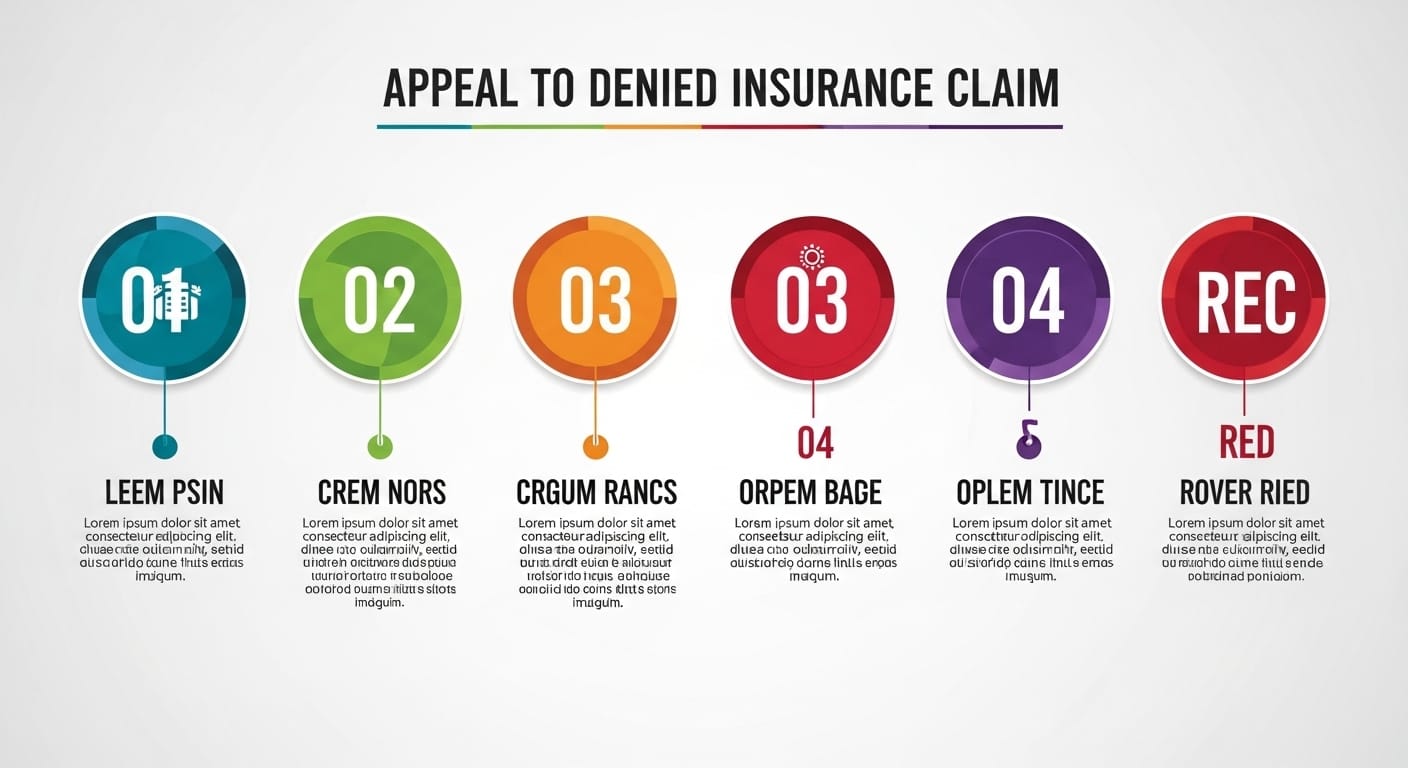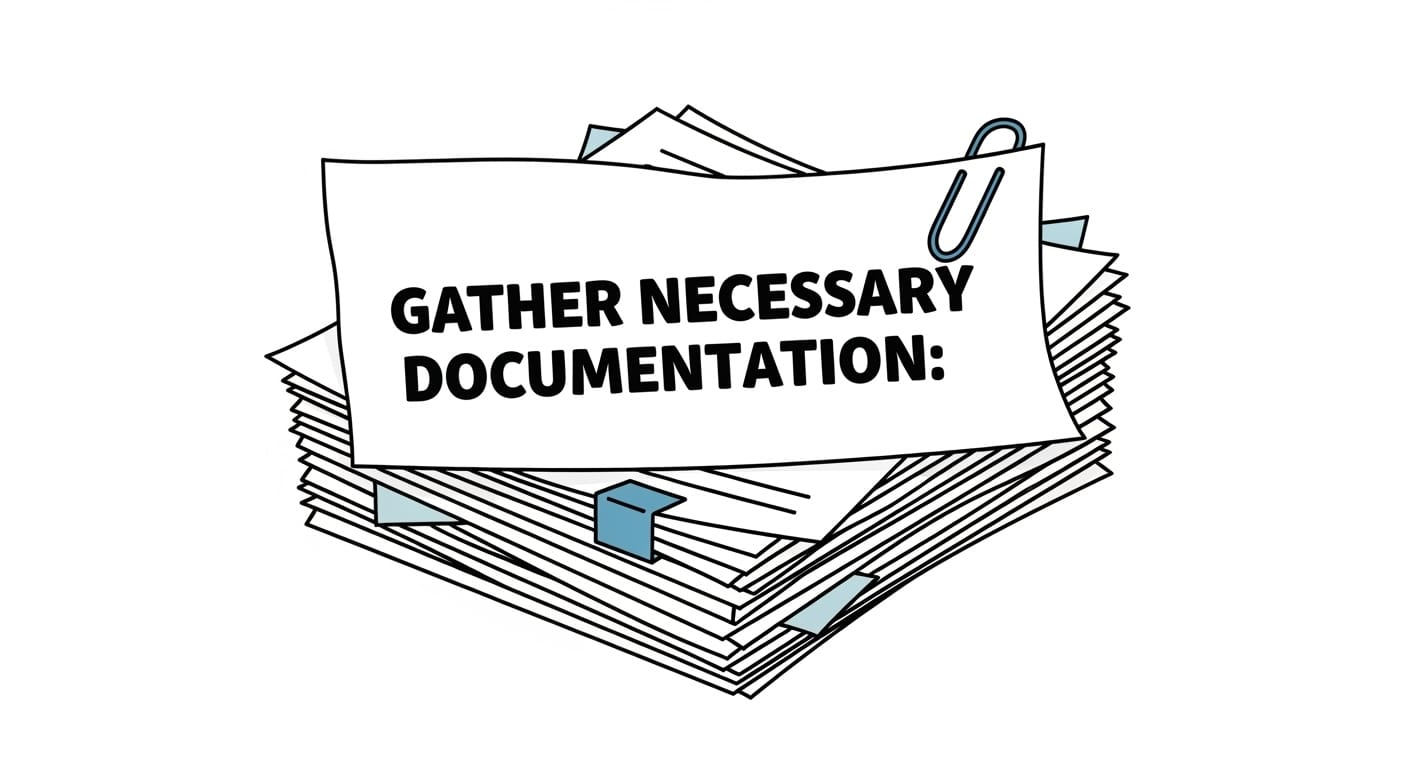Imagine this: you’ve just gone through the hassle of filing an insurance claim, thinking you’re all set for a payout, and then—bam!—the denial letter lands in your inbox.
Maybe it’s because your claim was “insufficiently documented” or because, apparently, “water damage from a pipe bursting isn’t covered unless it happens during a solar eclipse.” What? You just wanted your roof fixed, not a lecture on policy loopholes. Now what?

Top Takeaways and Key Concepts
Read the denial letter carefully to understand the exact reason your claim was denied.
Review your insurance policy to identify coverage details and locate clauses that support your appeal.
Gather strong evidence like photos, repair estimates, and written statements to prove your claim.
Speak with the insurance adjuster professionally to clarify misunderstandings and present new information.
Submit a written appeal that uses policy language and organized evidence to argue your case clearly.
Summary of This Article
This article explains how to respond when an insurance claim is denied and encourages policyholders not to give up after receiving a denial letter. It emphasizes the importance of first understanding the specific reason for denial by carefully reviewing the letter and contacting the insurance company for clarification. Readers are urged to review their policy in detail to identify coverage terms and potential misinterpretations. The article stresses the need for thorough documentation to support an appeal and recommends directly communicating with the insurance adjuster to resolve errors or disputes. It also advises submitting a formal written appeal that references policy language and includes supporting evidence. If the appeal fails, the article suggests considering legal assistance for larger or complex claims. Ultimately, persistence and preparation are key to overturning unfair claim denials.
Please Note: This post may contain affiliate links. If you click one of them, we may receive a commission at no extra cost to you. As an Amazon Associate, I earn from qualifying purchases.
If you find yourself in this not-so-dreamy scenario, don’t panic. Insurance companies might seem like Goliath in this situation, but you, my friend, have the slingshot of knowledge and determination.
You can appeal, and the odds aren’t as bad as you think. Let’s break down how to fight back when an insurance claim is denied, and maybe—just maybe—get that claim paid out in full.
Understand Why Your Claim Was Denied

First things first—before you start sending angry emails or hiring a skywriter to demand justice, it’s important to understand why your claim was denied in the first place. Honestly, sometimes the reason is as simple as a missed signature or a minor error in the paperwork.
But sometimes, it’s a bit more complicated, like a policy exclusion you didn’t read in fine print, or a misunderstanding about the specifics of your coverage.
By the way, this is where reading the denial letter carefully comes in handy. If they don’t give you a clear explanation (which, let’s face it, they’re experts at making things vague), don’t hesitate to call the insurance company and ask for clarification.
Sure, it might feel like you’re on hold for hours listening to the world’s worst elevator music, but once you understand the reason for the denial, you can better prepare your appeal.
Review Your Insurance Policy

I know, reading insurance policies is about as exciting as watching paint dry, but trust me, it’s important. Your policy is the roadmap to understanding what’s covered and what’s not. If you didn’t really pay attention to all those fine print clauses before, now is the time to crack open the policy and read it like you’re studying for the insurance Olympics.
Take a close look at any exclusions and conditions that might apply to your situation. Did your policy specifically exclude the type of damage you’re claiming for? Or, maybe you found out your coverage was actually limited by something you didn’t realize, like geographic location or specific damage criteria. If you find something that’s ambiguous or seems like it’s been misinterpreted, that could be a key argument in your appeal.
Collect All Necessary Documentation
This is your time to shine. Think of yourself as an insurance detective—gather all the evidence you can find. If you’re appealing a home insurance claim for water damage, for example, gather photos of the damage, repair bills, statements from contractors, and anything else that proves the severity of the situation. The more evidence you have, the stronger your case.
Honestly, I know it can feel like you’re preparing for a court trial, but getting everything in order is crucial. Remember, insurance companies love to find any excuse to not pay out, and a lack of documentation is one of their favorite tricks. So, don’t just throw everything into a folder and hope for the best. Organize your evidence and be thorough.
Contact Your Insurance Adjuster
Here’s where you get to flex those negotiation muscles. Contact the adjuster who handled your claim and ask for a meeting or phone call to discuss the denial. Don’t go in with a chip on your shoulder or assume they’re the enemy—remember, you’re both working toward the same goal: getting your claim resolved.
But be prepared. They might try to convince you that there’s nothing that can be done. It’s in their best interest to avoid paying out claims, after all. But in most cases, they’re legally obligated to review your case if you have additional information to present. This could be your opportunity to clear up any misunderstandings or present new evidence that changes the outcome of your claim.
Submit Your Appeal in Writing
Once you’ve gathered all your ammunition—documents, photos, statements, and any new information—it’s time to formally submit your appeal. You’ll need to write a clear, concise letter that explains why you think your claim should be paid out, based on the evidence you’ve gathered. Be sure to reference specific clauses in your policy and point out any errors or misinterpretations by the insurance company.
Let’s see, you might be tempted to write a letter filled with anger and frustration. Trust me, though—while venting your feelings might feel satisfying in the moment, it’s not going to win you any points with the insurance company. Keep it professional, focused, and polite. As much as you may want to end the letter with “I’ll see you in court,” resist the urge.
Consider Getting Legal Help
If your appeal is still denied after you’ve submitted your information, you may want to consider seeking legal help. A lawyer who specializes in insurance claims can offer valuable insights and help you understand whether you have a strong case for litigation. They can also assist in negotiating a settlement or even take the case to court if necessary.
On the other hand, hiring a lawyer can get expensive, so be sure to weigh the costs against the potential payout. Sometimes, the time and money it takes to pursue legal action aren’t worth it for smaller claims. However, if you’re dealing with a large claim or a particularly complex case, legal assistance might be exactly what you need.
Don’t Give Up
All things considered, appealing a denied insurance claim can be a frustrating and lengthy process. But it’s not an impossible one. Remember, the insurance company doesn’t want you to win; they’ll do everything they can to minimize their payouts. But if you’re persistent, organized, and know your rights, you can give yourself a fighting chance.
I mean, seriously, if you’ve ever had to fight with customer service over something like a misplaced order or an overcharged fee, you know that persistence pays off. The same goes for insurance companies. Don’t let the denial letter discourage you—keep fighting, and if it comes to it, take your case to court. After all, you’ve got the facts on your side.
Resources
How to Appeal an Insurance Claim
https://www.consumerreports.org/how-to-appeal-insurance-claim
Understanding Insurance Claims and Denials
https://www.iii.org/article/understanding-insurance-claims-and-denials
Insurance Dispute Resolution: What You Need to Know
https://www.nolo.com/legal-encyclopedia/insurance-claims-disputes.html
Frequently Asked Questions
What should I do first when my insurance claim is denied?
Start by carefully reading the denial letter to understand why your claim was denied. Contact your insurer if the explanation is unclear or lacks detail.
Why is reviewing my insurance policy important after a denial?
Reviewing your policy helps identify coverage terms, exclusions, and clauses that may support your appeal or reveal errors in the insurer’s reasoning.
What documents should I gather for an insurance appeal?
Collect photos, receipts, repair estimates, and written statements that verify your loss or damage. Organized, detailed evidence strengthens your appeal case.
Should I contact my insurance adjuster after a denial?
Yes. Speaking directly with your adjuster allows you to clarify issues, present new evidence, and discuss possible errors or misunderstandings in the initial review.
How do I write an effective insurance appeal letter?
Write a concise, professional letter explaining why your claim should be reconsidered. Reference specific policy clauses and attach relevant supporting documents.
When should I consider hiring a lawyer for my denied claim?
If your appeal is denied or the claim involves significant losses, consulting an insurance attorney can help you evaluate legal options or pursue a fair settlement.
Is it worth appealing a denied insurance claim?
Yes. Many claim denials are overturned on appeal when proper documentation and clear policy references are provided. Persistence and organization are key to success.

Kevin Collier is a legal expert passionate about simplifying complex legal concepts for everyday individuals. With a focus on providing clear, practical information, he covers a wide range of topics, including rights, responsibilities, and legal procedures. Kevin aims to empower readers with the knowledge they need to navigate the legal landscape confidently, ensuring they can make informed decisions regarding their legal matters. Through insightful articles and easy-to-understand resources, he helps demystify the law, making it accessible to all.










